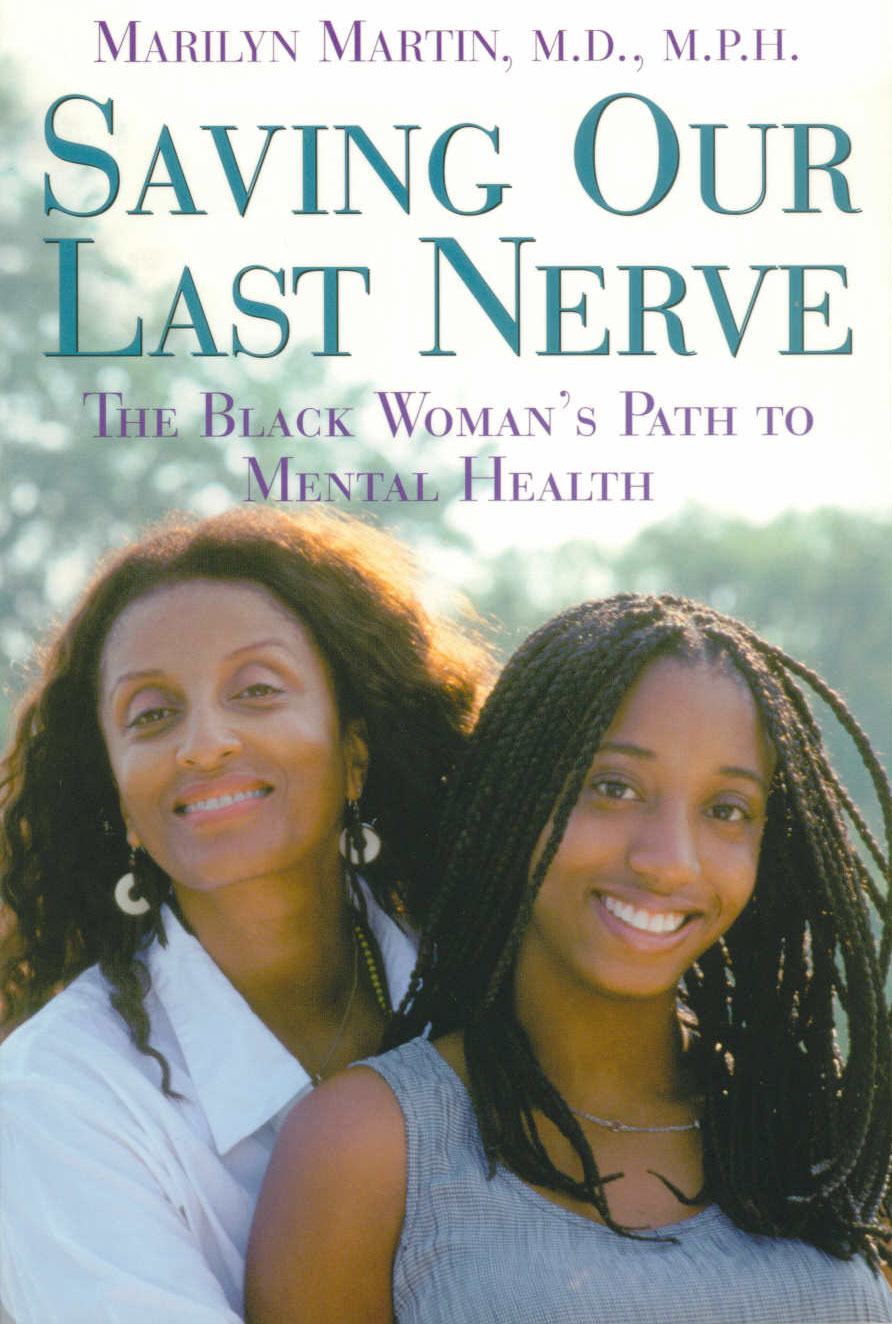 |
Saving Our Last Nerve The Black Woman's Path To Mental Health By Marilyn Martin, M.D., M.P.H.
|
|
The Book
To Purchase Online |
CHAPTER THREE ONE DOES NOT CROSS THE RIVER WITHOUT GETTING WET. How to Recognize and Cope with Stress Common to the Black American Woman. Darlene As she stood before the mirror getting dressed, Darlene noticed that the waistband of her favorite black dress was frayed. And when she looked at her face, she saw what she knew already-her nerves were more worn than the dress. She sighed, and headed out the door on her way to another funeral, as she’d done too many times in recent years. Too many of her friends were dying from AIDS, but nobody seemed to get the message. Even her best friend, Michelle, would say, when Darlene tried to reason with her: “You have to die from something.” Those words echoed in Darlene’s head as she waited for the bus, on her way to the funeral of another AIDS victim, her cousin Alan. Just two months earlier, she’d gone to the funeral of Alan’s partner. Darlene’s sadness had become consuming, and when she tried to talk to friends they didn’t have time. “Nobody has to die of AIDS,” she’d tell them. But no one wanted to listen. She attended grief support group sessions, but they didn’t help. The deaths had left her feeling abandoned, frightened, and defenseless. LEARNING TO GRIEVE Along the path of life, losses, failures, and disappointments often come our way. The Buddha said there are ten thousand joys and ten thousand sorrows. But many of us are shocked when things don’t go as planned or expected. We live somehow believing we will escape what every human being must experience. A Zen story tells us of a woman who has lost her child to illness. She approached a Zen Master, and asks that the burden of this tragedy be lifted from her shoulders. Yes, he says, but first she must go to every household in the village and find one that has not been struck by tragedy. Needless to say, she is unable to find one. And this was his lesson: tragedy comes to us all and we must learn the best way to deal with it. Learning this truth, to put it mildly, isn’t easy. Sometimes we make matters worse by blaming ourselves when no blame is appropriate. Sometimes we make matters worse by thinking how we did everything right but still we were made to suffer. Either way, we feed the sense of loss with the conviction that this suffering is unique to us. We all want to believe that because we have acted the right way we will be spared life’s pains, but of course, none of us is spared. At the very least, we all grow old, and sick, and die. And sometimes, like Darlene, we have to suffer things that we don’t individually have the power to change. The tragic events of 9/11/2001 simply showed us once again what life tries to teach us all along: disaster can come out of the sky, in the blink of an eye, and destroy innocent lives. Too often, even as we tell other people and ourselves that we have accepted some loss, deep down we still try to undo it, still try to reverse the past so the event never happens, so our lives can return to what they were before and we can feel safer. Yet people who believe they are in control may find themselves especially unprepared when challenges and disasters land on their doorsteps, and often hide their pain and grief very well. Losing successfully is a hard game, and few people have been taught to play it well. We pity ourselves and seek pity from others. Self-pity and sympathy from other people may provide a certain temporary comfort, but they don’t take care of business. Ultimately, taking care of the business of grieving means getting on with our lives. But to do that, first we must truly have grieved. Successful grieving is a kind of healing. Yes, it leaves scars, but it allows us to continue to function, sometimes stronger than before, because we have faced our grief honestly in the depth of our hearts. Self-pity can stand in the way of “successful grieving,” and we need to look at its sources. We get caught in self-pity because we walk around with daydreams of how things should be. Our dreams may be made up of the following elements: · An ideal family, one in which we are loved and affirmed. · A financially stable existence. · A comfortable home. · The ideal that the people we love-spouses, parents, grandparents, children, friends-will remain in our lives forever. · That we will be young and healthy forever. · That we will live in a society that loves and affirms us. · That we will be loved unconditionally. · That we will have a spouse who will love us forever. When any of these dream-expectations break down, we may feel that we’ve somehow been betrayed.
|
|
Site by J. Lah |
|